2025 AGM Major Presenters
87th International Meeting of the CBA
August 2 - 5, 2025 | Loyola University Chicago & Zoom
Sunday Simultaneous Sessions
- “The Virtue Ethics of Proverbs and the Poem to the Woman of Valor”
Timothy J. Sandoval, Texas Christian University
Understanding the book of Proverbs as an ancient virtue-oriented moral discourse addressed primarily to well-placed men, this paper explores the significance of the feminine figuration of Proverbs’ androcentric wisdom (Woman Wisdom and the Eshet Chayil) by reconsidering the rhetoric of the poem to the Woman of Valor in Proverbs 31. 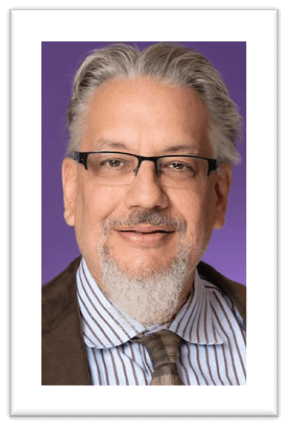 Timothy J. Sandoval joined the Religion Department of Texas Christian University (TCU) in
Timothy J. Sandoval joined the Religion Department of Texas Christian University (TCU) in
the Fall of 2024. He previously has taught at Brite Divinity School and Chicago Theological
Seminary. Sandoval’s teaching and scholarly work has focused on the book of Proverbs and the Bible’s
wisdom literature, with special attention to questions of ethics, justice, and poverty. Sandoval
is also interested in how different communities, especially Latinx communities and scholars,
interpret the Bible and he has taught Bible classes in Spanish language programs in Chicago,
Texas, and Costa Rica.
- “Embodying the Divine: God, Jesus, and the Body in New Testament Christology”
Brittany E. Wilson, Duke Divinity School
Since the turn of the twentieth century, a variety of different methodological approaches have emerged when it comes to the study of New Testament Christology. What is often missing in the study of New Testament Christology, however, is the role of the body. More specifically, scholarship has not attended to how New Testament texts connect Jesus to God’s wider anthropomorphic characterization in the New Testament, including depictions of God’s human form and attendant “body parts.” In this paper, I will turn my attention to these corporeal connections and argue that they become a key mechanism through which a variety of New Testament texts express Jesus’s divinity and relationship with God. Contrary to popular opinion, the human body in fact plays an important role in early Christian conceptions of God and of the embodied connection between God and Jesus himself.
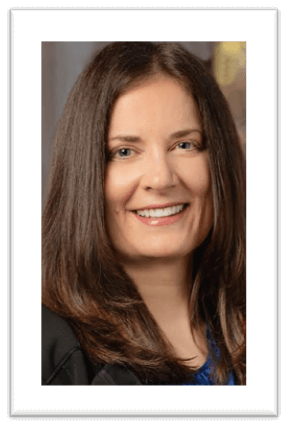
Brittany E. Wilson is associate professor of New Testament at Duke University Divinity School. Her research focuses on issues related to embodiment, gender, and the senses, as well as New Testament Christology and portrayals of the divine in antiquity. Her book The Embodied God: Seeing the Divine in Luke-Acts and the Early Church explores these topics primarily in Luke and Acts, and her current book project expands this exploration to the New Testament more broadly.
Sunday Evening General Session
- President’s Address
Carol J. Dempsey, O.P., University of Portland
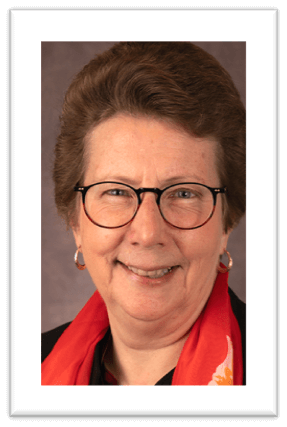 Carol J. Dempsey, O.P. is an internationally recognized and award-winning scholar who teaches courses in Biblical Studies, specifically in Old Testament/Hebrew Bible. With particular expertise in the Prophets, Dempsey’s interests lie in a feminist and liberation approach to biblical texts, gender studies, biblical theology, literary and rhetorical criticism, and environmental/ecological studies. She teaches an introductory course in Bible as well as courses in the Prophets, Wisdom, Gender, Biblical Spirituality. As part of the University of Portland Theology Department’s Theological Perspectives offerings, she team teaches a course entitled “Heat, Hunger, and Hurricanes: Biblical, Theological, Scientific, and Philosophical Perspectives on Climate Change.” She is a seasoned teacher, having taught on the grade school, high school, college, university, and graduate levels. She delights in the life of the mind and in educating the whole person. She holds a BA in English and Religious Studies with minors in History and Education from Caldwell University; a Certificate for Advanced Studies in Scripture and Theology from the Institute for Religious Formation in Biblical and Theological Studies, Seton Hall University/Caldwell University; New Jersey State Certification in Teaching (English K-12); an MA in English with a minor in Theology from St. Louis University; and a Ph.D. in Biblical Studies from The Catholic University of America.
Carol J. Dempsey, O.P. is an internationally recognized and award-winning scholar who teaches courses in Biblical Studies, specifically in Old Testament/Hebrew Bible. With particular expertise in the Prophets, Dempsey’s interests lie in a feminist and liberation approach to biblical texts, gender studies, biblical theology, literary and rhetorical criticism, and environmental/ecological studies. She teaches an introductory course in Bible as well as courses in the Prophets, Wisdom, Gender, Biblical Spirituality. As part of the University of Portland Theology Department’s Theological Perspectives offerings, she team teaches a course entitled “Heat, Hunger, and Hurricanes: Biblical, Theological, Scientific, and Philosophical Perspectives on Climate Change.” She is a seasoned teacher, having taught on the grade school, high school, college, university, and graduate levels. She delights in the life of the mind and in educating the whole person. She holds a BA in English and Religious Studies with minors in History and Education from Caldwell University; a Certificate for Advanced Studies in Scripture and Theology from the Institute for Religious Formation in Biblical and Theological Studies, Seton Hall University/Caldwell University; New Jersey State Certification in Teaching (English K-12); an MA in English with a minor in Theology from St. Louis University; and a Ph.D. in Biblical Studies from The Catholic University of America.
Monday Simultaneous Sessions
- “Contextual Readings of the Book of Ruth in Southern Africa ”
Karina Martin Hogan, Fordham University
The book of Ruth has been the subject of several contextual analyses by biblical scholars from southern Africa, including Musa Dube from Botswana and the South African scholars L. Juliana Claasens, Madipoane Masenya (ngwan’a Mphahlele) and Gerald O. West. This paper brings into conversation readings of the book of Ruth that focus on issues of gender and sexuality as they relate to contexts in southern Africa. In addition to the work of biblical scholars, this paper engages with the insights of a group of LGBTQI+ lay readers who took part in a discussion of the book of Ruth in Johannesburg, South Africa, which was informed by the model of Contextual Bible Study developed at the Ujamaa Centre (formerly Institute for the Study of the Bible) at the University of KwaZulu-Natal.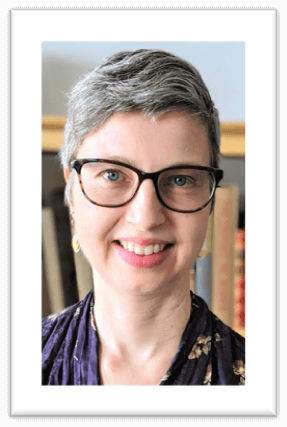 Karina Martin Hogan has been a member of the Theology Department at Fordham University since 2005. She is also affiliated faculty in the programs in Jewish Studies and Women’s, Gender and Sexuality Studies at Fordham. Prior to coming to Fordham, she taught for two years at St. Anselm College in Manchester, NH. Karina was trained in biblical studies at the Divinity School of the University of Chicago (PhD 2002), but most of her research has been on the deuterocanonical or noncanonical literature of early Judaism. She has a particular interest in wisdom and apocalyptic literature. Recently, however, her research has focused on the book of Ruth in the Old Testament, approaching it from feminist and contextual perspectives. Working on the book of Ruth has also led her to an interest in the theme of migration in the Bible, which has been the focus of her teaching for the past year.
Karina Martin Hogan has been a member of the Theology Department at Fordham University since 2005. She is also affiliated faculty in the programs in Jewish Studies and Women’s, Gender and Sexuality Studies at Fordham. Prior to coming to Fordham, she taught for two years at St. Anselm College in Manchester, NH. Karina was trained in biblical studies at the Divinity School of the University of Chicago (PhD 2002), but most of her research has been on the deuterocanonical or noncanonical literature of early Judaism. She has a particular interest in wisdom and apocalyptic literature. Recently, however, her research has focused on the book of Ruth in the Old Testament, approaching it from feminist and contextual perspectives. Working on the book of Ruth has also led her to an interest in the theme of migration in the Bible, which has been the focus of her teaching for the past year.
- “Paul, A Pharisee in the Messiah: The Apostle’s Teaching within Judaism”
Michael P. Barber, Augustine Institute
In the Acts of the Apostles, Paul explains, “I am a Pharisee” (Acts 23:6). Whatever one makes of the controverted issue of this book’s relationship to the historical Paul, that he is remembered in it as continuing to identify as a Pharisee after his Damascus Road experience is remarkable. This paper builds on recent Pharisee research (e.g., Sievers and Levine 2021) as well as Pauline scholarship (e.g., (Novenson 2022; Zoccali 2017; etc.) to make the case that the apostle likely did not consider himself a “former Pharisee.” Rather, careful consideration suggests that Paul believed that being “in the Messiah” meant that he “could only be an even better Pharisee” (Fredriksen 2021). Such an understanding of Paul sheds important light on the apostle’s location within Judaism and, moreover, can help advance interreligious dialogue between Christians and the Jewish people.
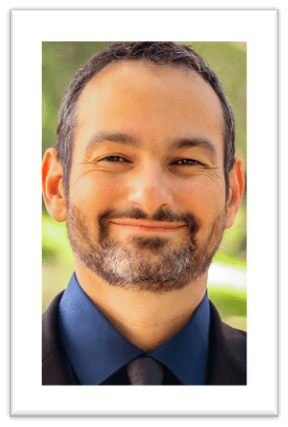
Michael Patrick Barber is Professor of Scripture and Theology at the Augustine Institute (Florissant, MO).
He is the author of numerous scholarly publications, including, The Historical Jesus and the Temple: Memory, Methodology, and the Gospel of Matthew (Cambridge University Press, 2023) and The Bible and Anointing of the Sick: Healing in Christ (Baker Academic, 2024).
Tuesday Morning General Session
- “Praying (with) Deuteronomy: From Qumran to Dura-Europos”
Ariel Feldman, Brite Divinity School
Deuteronomy had an enormous impact on Jewish liturgy. Suffice it to mention the Shema of Deuteronomy 6. In this paper I take a closer look at the so-called “excerpted” Deuteronomy scrolls from Qumran. Scholars have long tried to explain how these small scrolls functioned. One theory posits that they were used liturgically. I revisit this proposal highlighting the inclusion of Deut 8:5-10 in some of these texts. I then trace the impact of this pericope and its famous injunction--“You shall eat your fill and bless the Lord your God”—on the early Jewish (and Christian) prayer texts and practices, from Qumran to Dura-Europos.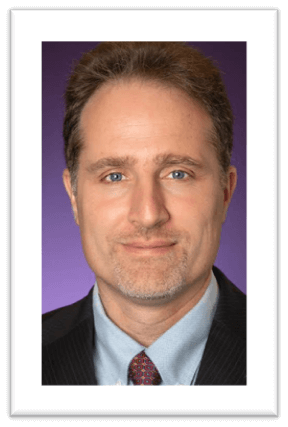
Ariel Feldman is the Rosalyn and Manny Rosenthal Professor of Jewish Studies at Brite Divinity School and Texas Christian University. His research focuses on the Second Temple Period and its literatures. He published multiple books and articles, most of which deal with what has been described as the greatest archaeological discovery of the 20th century—the Dead Sea Scrolls.

